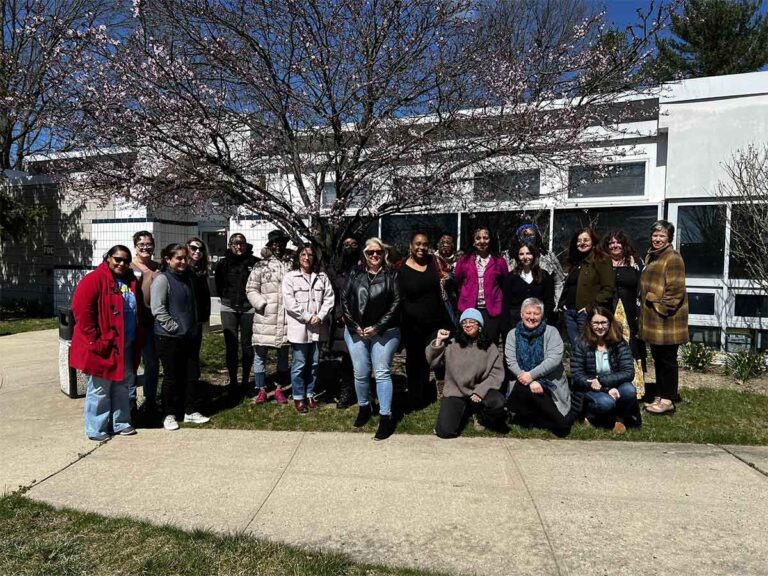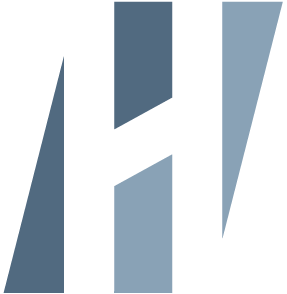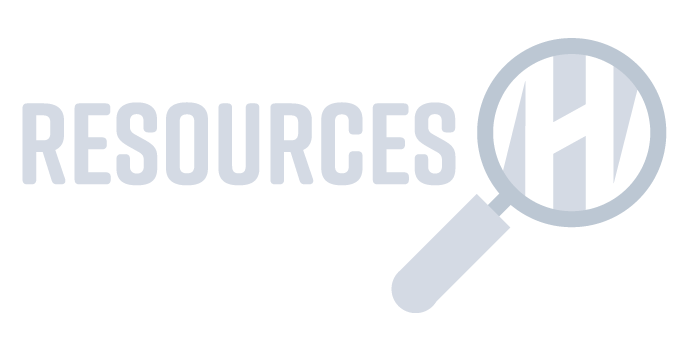Community History
Community History participants work closely with their communities to learn about and share their untold stories. Participants receive instruction on public history practices, develop projects in a collaborative environment, and receive funding from NJCH to launch projects in their communities.
Participants will examine questions such as:
- How can learning about our community’s history help us to understand our present circumstances and look to the future?
- How can our organization engage with community histories and share these histories with our community members?
- How can we preserve, interpret, and amplify our local histories?
- How can we broaden traditional narratives about our local histories to reflect our whole community’s experiences and values?
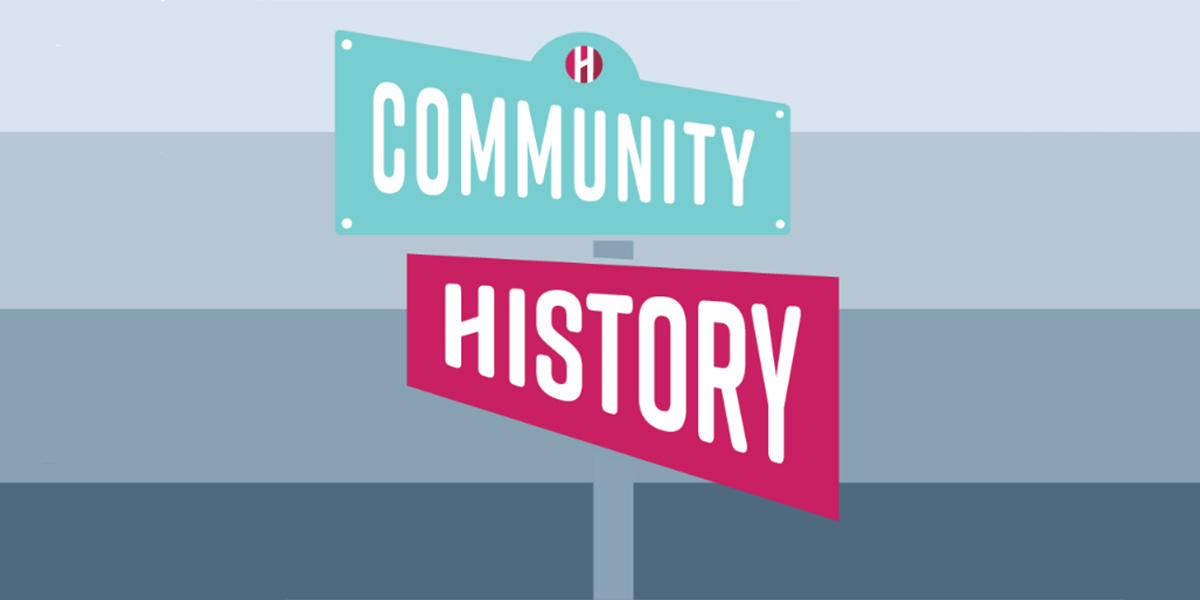
Nonprofit organizations, state and local government, and unincorporated community groups are eligible to apply to be part of Community History. The application deadline for Community History Cohort 2024 closed on January 17. Please check out the work of our recent cohorts, and visit again soon to meet our new cohort of participants.
Quick Links
Information Session
Did you miss our virtual information on December 11?
No worries. The recording is available now, and the presentation slides are posted below! This recorded information session covers program and eligibility guidelines, application process and timeline, and all of your questions for the 2024 program cohort.
New: What’s happening in Community History
To help you keep up with the progress of our program participants, we've launched a new blog, which will be updated regularly with the latest from organizations on their Community History journeys!
Kicking Off the 2024 Community History Cohort
Community History 2024 is now underway! This past March, the 9 organizations in the cohort met twice at the Twin Rivers Branch Library in West Windsor to learn all about community-engaged public history.
Read MoreWelcome our New Cohort!
- Glen Rock Historical and Preservation Society
- Bloomingdale Free Public Library
- Avon-by-the-Sea Historical Society
- Atlantic City Free Public Library
- South Jersey Artist Collective
- Lawnside Historical Society
- Montclair Public Library
- Southern Ocean Chamber Association
- MUYU - Jersey City
Past Cohort Projects
Click here read about the Community History 2023 Showcase, or view descriptions and presentations of participant projects below.
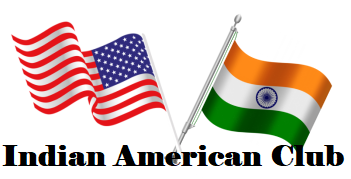
Indian American Club
Indian American ClubProject promoted better understanding of the Indian American community in New Jersey. |
|
The Indian American Club’s project collected and showcased stories that promote better understanding of the Indian American community in New Jersey. They hosted a panel of Indian Americans with business backgrounds to discuss their experiences with immigration and to foster networking and conversation among program participants. The panel emphasized the power in building community and keeping Indian culture alive in New Jersey. Indian American Club hopes to host future events like this due to the positive feedback received from the panelists and audience members. |
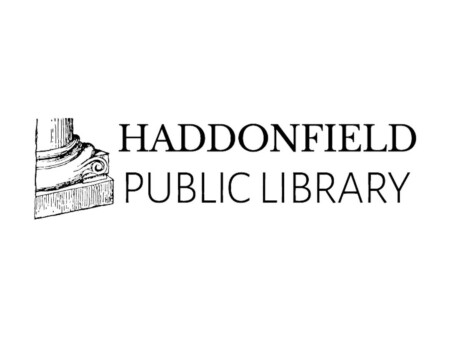
Haddonfield Public Library
Haddonfield Public LibraryHaddonfield Public Library showed us the importance of making historical resources readily available to the community. |
|
Haddonfield Public Library showed us the importance of making historical resources readily available to the community. The vault of their library, formerly a 1920s bank, houses a local history collection with all sorts of old documents: scrapbooks, meeting minutes, and more. One day, when poking around in the collections, Andrea Elson stumbled upon a brown sandwich bag containing letters from the late eighteenth century.
These letters had been lying in the vault for years, unbeknownst to any members of the staff. According to Elson and Cathy DeCampli, “The discovery and realization that the library had all of these resources fueled our participation in the Community History project.”
They looked for ways to make their collections more accessible to the community and began promoting the library as a central spot for community history engagement in their Borough, offering greater access to scanned historical documents and purchasing a digital kiosk to allow community members to present their stories through interactive maps and virtual exhibits. |
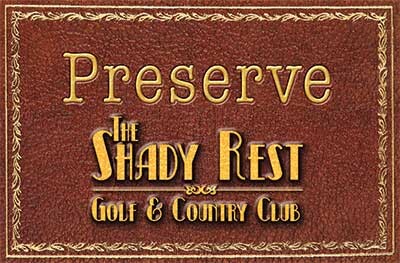
Preserve Shady Rest Committee
Preserve Shady Rest CommitteeAfter participating in Community History, Preserve Shady Rest applied for and was awarded an incubation grant from NJCH to continue its work through the initiation of a master plan. |
|
By setting up opportunities for community members to share their stories, Preserve Shady Rest learned about the rich African American history of their site, as well as the community’s interest in preserving this history. After participating in Community History, Preserve Shady Rest applied for and was awarded an incubation grant from NJCH to continue its work through the initiation of a master plan. Click here to learn more about that work. |
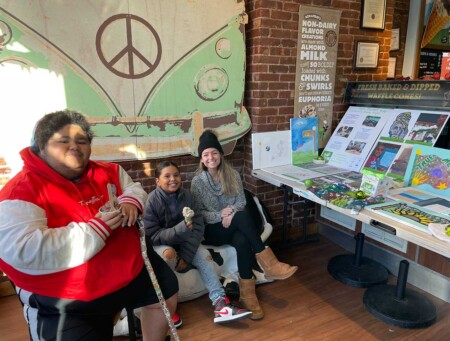
TRUE Mentors Inc.
TRUE Mentors Inc.Giving voice to youth so that they have the power to shape the historical narrative. |
|
TRUE Mentors’ project centered on the importance of giving voice to youth so that they have the power to shape the historical narrative. They partnered with the Rutgers Filmmaking department and Hoboken Historical Society to provide the resources and skills to youth to create their own documentary film about important historical events in their community. Once completed, their film will be showcased to the community at a local theatre. We’re looking forward to seeing the final product! |
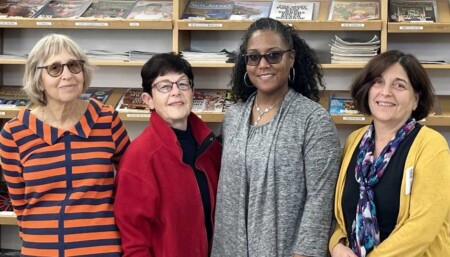
Union Public Library
Union Public LibraryThe project helped the library to expand their collection to more accurately reflect the people within their community. |
|
Union Public Library’s project gathered and documented immigrant stories within their community. They developed a preliminary film containing these stories, with Spanish subtitles, which showcase attendees had the opportunity to preview. According to Debbie Walter and Barbara LaMort, their community history project helped the library to expand their collection to more accurately reflect the people within their community. Through participation in the program, they learned the value of listening to constituents and developing programs to meet their needs. |
Click here to view the Community History Fall 2022 Showcase, or view descriptions and presentations of participant projects below.
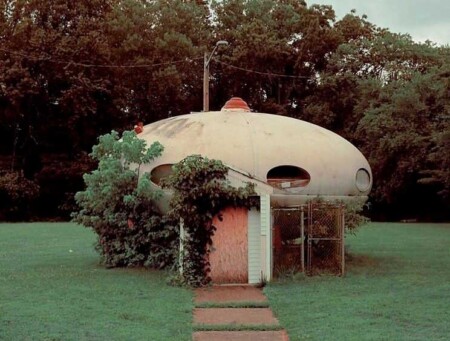
Willingboro Community Development Corporation (WCDC)
Willingboro Community Development Corporation (WCDC)“Community learning sessions offered opportunities to exchange knowledge, ideas, and experiences with participants. This knowledge will guide us in developing effective strategies, avoiding common pitfalls, and maximizing impact.” |
|
Willingboro Community Development Corporation (WCDC) explored the history of the Futuro House, a UFO-like structure designed as a portable ski chalet in the late 1960s and placed in its spot in Willingboro in 1973. Several other Futuro Houses were deposited around the world. Only 19 remain in the country, and Willingboro’s Futuro House is New Jersey’s only remaining Futuro House. WCDC organized a series of focus groups of Willingboro residents to learn more about why their town was chosen as a Futuro House “landing point” and to gather community feedback to brainstorm how they might use it today. The WCDC plans to continue researching the history and possible preservation of the Futuro House to foster a sense of pride, ownership, and shared history with the community to ensure that Willingboro’s unique identity as the home of a Futuro House is not lost but celebrated. |
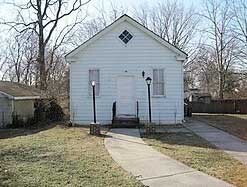
The FAF Coalition
The FAF Coalition“We learned a lot about the concept of community history in that it is not the same as “Capital H” history, but rather it’s more about storytelling and community engagement.” |
|
The FAF Coalition focused on uplifting the significant and largely unknown Black history of Woodbury. Their project team gathered research on the Carpenter Street School, built in 1840 and one of New Jersey’s oldest existing schoolhouses for African-Americans. On February 25, 2023, The Coalition hosted a Black History Month event at Bethel AME Church to display their research findings to the community and open discussion for community members to share what Black history means to them. The project team also implemented a volunteer Woodbury Black Organizing Committee to continue the work of uplifting and spreading awareness of the Black history of Woodbury. |
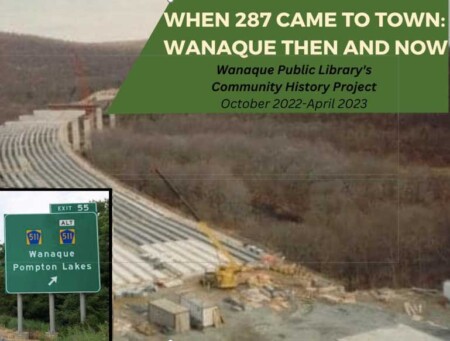
Wanaque Public Library
Wanaque Public Library“As someone with no prior experience in public history, participating in the group learning sessions gave me the confidence to tackle this project.” |
|
Wanaque Public Library traced the impact of the building of Route 287 on the town of Haskell. Their project team conducted surveys and oral history interviews with residents to document and collect stories on how this change affected the Haskell community. They also indexed photos and comments related to Route 287 posted on the Good Ol’ Haskell Facebook group and researched census records to trace demographic changes before, during, and after the highway came to town. |
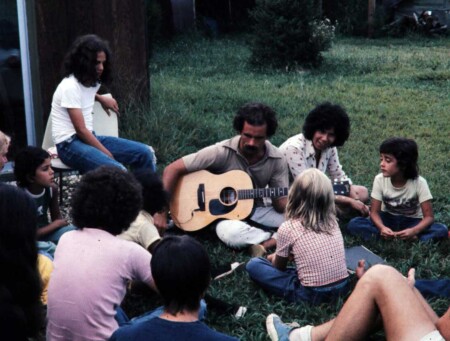
Appel Farm Arts & Music Center
Appel Farm Arts & Music Center“This program has given us the time and resources to capture a slice of our organization’s long and unique history and to explore some processes for further documentation of our alumni community’s experiences.” |
|
Appel Farm Arts & Music Center explored the history of their summer Arts Camp, which has been around for more than 60 years and maintains an active alumni community. The project digitized archival materials, including photographs, VHS tapes, press clippings, and other materials contributed by community members, and recorded interviews with camp alumni. In the future, Appel Farm hopes to continue building their alumni database and collecting stories from the camp alumni community. |
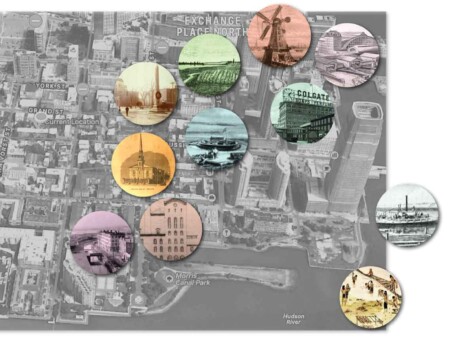
Historic Paulus Hook Association
Historic Paulus Hook Association“A foundational principle we practiced from the learning sessions was the primacy of community input and feedback into the what and how of any project design.” |
|
“Underground Jersey City: Where am I?” aims to uncover the living past of local historic sites, starting with pre-colonization of Lenape land in Paulus Hook and continuing through the nineteenth century. The Association coordinated a Community Advisory Board, sent out surveys, and hosted public meetings to engage the local community in the planning and content of their project. Through this process, their project team learned what aspects of Paulus Hook’s history the community found most compelling, and in the next stages of the project they plan to build an interactive ArcGIS map to help the public see where history happened in their own neighborhoods. They hope that this map will become the basis of a walking tour and inform future installation of site-markers throughout Paulus Hook and beyond in Jersey City. |
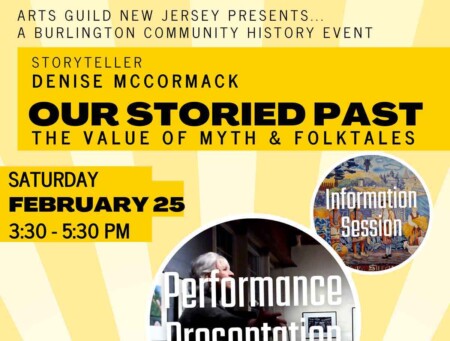
Arts Guild New Jersey
Arts Guild New Jersey“Participation in the Community History learning sessions provided insights based on a broad spectrum of past and current projects of colleagues in the program.” |
|
Arts Guild New Jersey researched seventeenth-century Burlington County sources to highlight stories of peaceful intercultural communication and collaboration between the Lenape, Old Settler, and British Quaker cultures. At an event titled “Our Storied Past,” Arts Guild presented the findings of their research through a telling of selected stories from mythologies, legends, and the history of these cultures. |
Click here to view the Community History Spring 2022 Showcase, or view descriptions and presentations of participant projects below.
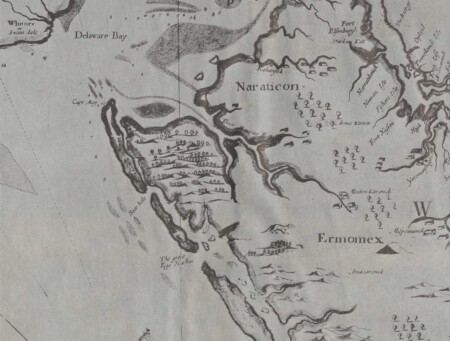
Greater Cape May Historical Society
Greater Cape May Historical Society“We are so grateful for the opportunity and the experience to work with a cohort of non-profits with different missions. We learned from them and the importance of learning how to get your organization’s mission into the minds and hearts of their respective communities.” |
|
The Greater Cape May Historical Society’s mission is to collect, preserve, document, interpret and share the history of the greater Cape May area. The Society’s community history project focused on the work of the Cape May Geographic Society, which published annual bulletins from 1947 through 1991 pertaining to the natural history of the Cape May region and advocated for the preservation of the region’s natural beauty and the study of its history. By digitizing historical materials created by the Geographic Society and sharing them with local community members, the Historical Society provides historical context for the significant interest today in the ecology of greater Cape May, a destination for ecotourism, birding, and nature photography. |
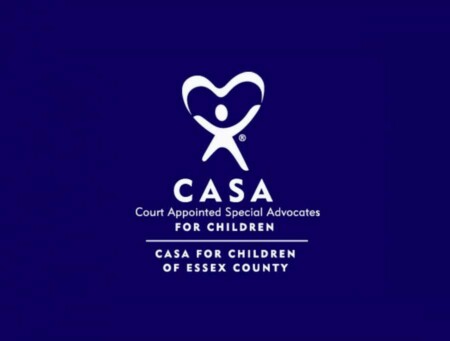
Court Appointed Special Advocates (CASA) for Children of Essex County
Court Appointed Special Advocates (CASA) for Children of Essex County“The learning sessions greatly enhanced our ability to challenge the hierarchy of who gets to write history.” |
|
CASA Essex developed a plan to capture and give voice to the stories of people who have lived experience in the child welfare system. They worked closely with community partners to convene an Advisory Committee with expertise in child welfare, Essex County history, and philanthropy to consider how to focus their historical research, allow participants to maintain ownership of their stories, and lead lasting change. The Community History Program helped CASA Essex learn how this kind of community-based history and storytelling can provide new ways to achieve their goal to help the broader community understand the circumstances families face that lead to involvement with the child welfare system. |
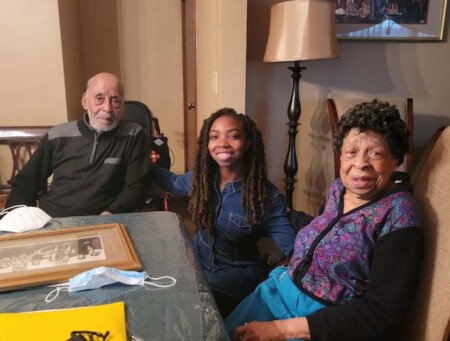
New Jersey Orators, Inc.
New Jersey Orators, Inc.“The Stakeholder Mapping process helped us to identify local stakeholders who we had not partnered with before and broaden our communication plan for our community history project.” |
|
New Jersey Orators, Inc. (NJO) is dedicated to teaching the art of public speaking, an appreciation for literature, reading literacy, civic engagement, college readiness and life skills to youth between the ages of 7 and 18 years. As participants in the Community History program, the organization developed an initial interview framework for their NJO “Experienced Orators” to use for a national rollout of their Oral History Project. NJO high school students interviewed women from Middlesex, Somerset and Union Counties over the age of 90, collecting their recollections and experiences living through the Civil Rights Era and created original oratories based on those interviews. This was an initial pilot project to form the basis for a national partnership with the National Association of University Women (NAUW). NJO developed the foundation for an oral history project called “Remembering Their Legacy: An Oral History of our Seniors,” where they will interview and record the recollections of the NAUW Forever Emeralds, past presidents over the age of 90. The Orators’ collection of audio and video recordings from this project, as well as the historical digital artifacts uncovered through their research, will be archived at Rutgers University. The Oral History Project will be expanded around the state and nationally in the coming years. |

TRUE Mentors, Inc.
TRUE Mentors, Inc.“Our organization intends to continue finding ways to teach our youth about community history and devise more projects for our youth to engage with their communities and the history that surrounds them.” |
|
TRUE Mentors, Inc. is a volunteer-based community organization that provides mentoring programs to at-risk youth residing within Hudson County. The goal of the organization’s Community History project was to make their youth feel represented in their communities while also learning about the history of the people who have impacted their communities before them. TRUE Mentors accomplished this by holding expert-led workshops on ways to reflect personal, familial, and cultural connections through art, such as portraiture, iconography, and mapping. Youth then created their own works of art based on these cultural and historical methods that were presented in a culminating event at Ben & Jerry’s in Hoboken in November 2022. |
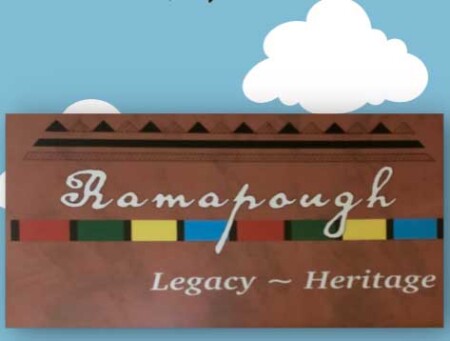
Mahwah Museum
Mahwah Museum“We gained information on technical aspects of the work we seek to develop, such as recording equipment, microphones, file types, software and methods to use for recording and maintaining the material in digital form.” |
|
The Mahwah Museum Community History project is developing a 21st century presentation of the Ramapough community – its Legacy and Heritage. Highlights include featured oral history segments from respected Ramapough elders; audio recorded tribal legend stories accessible through QR codes on free bookmarks; quotes from community surveys of local community members who grew up in Ramapough; the history and struggle of State and Federal Recognition for the Ramapough Indian Nation; and a look at tribal customs and Pow Wow regalia. During the Community History program, the team recorded recitations of a Lenape prayer in Munsee language by a Ramapough elder and three narrations of Tribal Legacy stories: “How Two Bears Lost Their Tails;” “The Most Beautiful Bird;” and “How the Evil Manitoo Broke his Apron Strings.” The story images and reading of these stories were made into QR codes available on bookmarks available at the Mahwah Public Library and the Ringwood Public Library. |
Click here to view the Community History 2021 Showcase, or view descriptions and presentations of participant projects below.
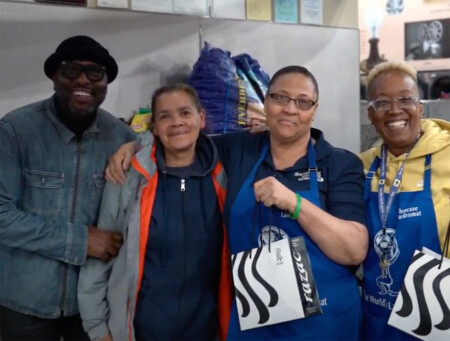
Clinton Hill Community Action
Clinton Hill Community Action“Perhaps the lesson with the biggest impact on Clinton Hill was that, with some training, we could be our own public historians.” |
|
The Clinton Hill Neighborhood History Project is a multi-year, public history project involving oral histories with community members, collections of photos and artifacts, and identification of community and historical landmarks to tell the neighborhood’s history. On December 3, 2022, the project team held a history fair to showcase their project and engage the community in a rich conversation on Clinton Hill’s history. |
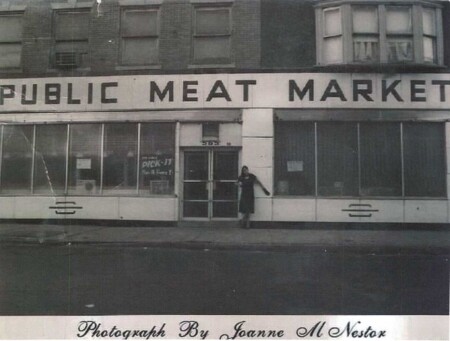
East Trenton Collaborative
East Trenton Collaborative“The oral histories that we have been conducting for this project have helped to develop a deeper connection with the East Trenton residents and a deeper understanding of our role in the neighborhood” |
|
East Trenton Collaborative (ETC) is a neighborhood revitalization and community organizing initiative based in the East Trenton neighborhood. During the Community History program, ETC conducted oral histories to capture elements of East Trenton neighborhood’s history from the perspectives of longtime residents. During monthly Community Meetings and one-on-one interviews, they completed 7 oral histories with East Trenton residents and compiled an outreach list of over 20 residents. They learned that the East Trenton Center, ETC’s office and Community Center, has played a crucial role in their community for decades as a central neighborhood hub. They see this project as a starting point for developing a fuller vision of East Trenton’s community history, and by getting the effort started, ETC created something that the East Trenton community will continue to contribute to in the future. |
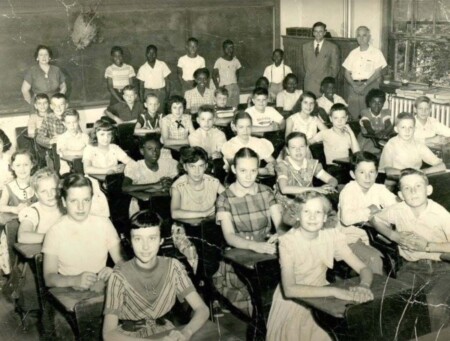
Community Partnership for Egg Harbor Township Schools
Community Partnership for Egg Harbor Township Schools“The project impacted us by opening our minds to a past that is not always so ‘prideful.’” |
|
The Community Partnership for Egg Harbor Township Schools researched and documented the history of Egg Harbor Township Schools, for which the partnership helps to raise funds and provide other supports. Looking through old school photographs, examining documents, and interviewing with former students, teachers, staff, and community members, the project team charted the incredible growth of the school district as the township grew—through its highs and lows. From this research the team created a short documentary about the history of the school district that debuted in June 2022 at a School History Night event hosted at Egg Harbor Township High School and remains part of the curriculum for students in the district. |
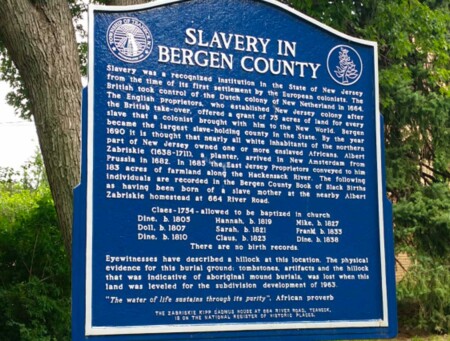
Enslaved African Memorial
Enslaved African Memorial“Members of the community were excited to learn about this discovery and had a desire to learn more and offer support to our ongoing efforts to tell the story of slavery in New Jersey.” |
|
Enslaved African Memorial Committee gives presence to the stories of the enslaved Africans who helped build the infrastructure of what is now one of the richest but was once one of the largest slave-holding counties in New Jersey: Bergen County. This project focused on a nineteenth-century African community in Paramus called Dunkerhook that was founded by two formerly enslaved individuals who rented the homes of their former enslaver upon their emancipation. EAMC’s work during Community History included continued archaeological excavation of the site in partnership with Montclair State University and work on a documentary film that will tell the story of Dunkerhook to illuminate another piece of the often overlooked history of slavery in New Jersey. |
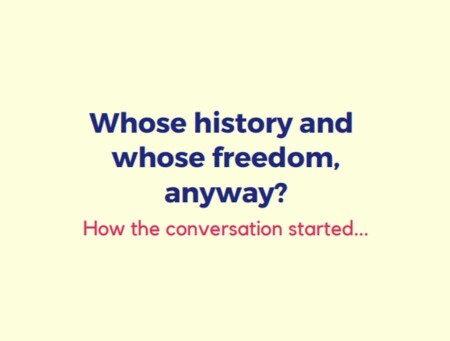
Old Mill Hill Society
Old Mill Hill Society“You don’t need to be a museum, and you don’t need to be a historian, to jump in and do meaningful community history work.” |
|
The Old Mill Hill Society is dedicated to historic preservation and restoration of properties within the Mill Hill area of Trenton. Community members launched this history project in response to graffiti appearing on a statue of George Washington in the neighborhood following the Black Lives Matter protests during the summer of 2020, creating opportunities for the Mill Hill community to discuss how the Revolutionary War and its rhetoric resonates with African Americans. The project team sent out surveys and held public discussions to discern which issues to were most important to community members, and then settled on a plan to research and share stories of African Americans during the Revolutionary War. The committee involved Sprout U School of the Arts in Trenton to create a “living history” event at Trenton Free Public Library with students portraying various individuals from the Revolutionary War period, such as Boston King, Phillis Wheatley, and Ona Judge. They also created an archive of historical photographs and newspaper articles that will expand as the project continues. |
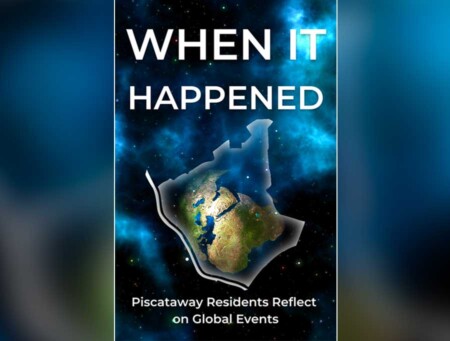
Piscataway Public Library
Piscataway Public Library“We can certainly see how much work went into the making of ’When It Happened.’ The party had good food, friendly people, interesting and informative talks, and a great complimentary book. What’s not to love!” |
|
Piscataway Public Library collected stories from Piscataway residents about what it was like to live in the community during major historical events, including 9/11, the Great Recession, the founding of Black Lives Matter, the passing of same-sex marriage legislation by the Supreme Court, the COVID-19 pandemic, and Hurricane Ida. Team members created a website and form for community members to contribute vignettes of their experiences. In September 2022, selected contributions were published in a book titled When It Happened: Piscataway Reflects on Global Events, which was distributed at various sites around town and remains available to be checked out at both library branches. The culmination of the project was a Book Launch party at the library. |
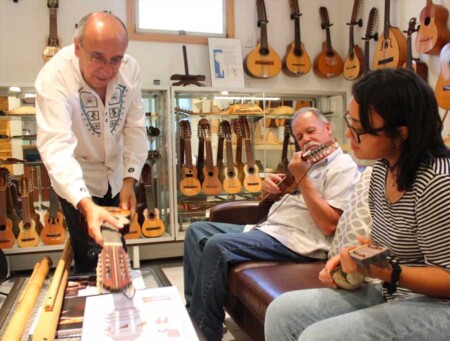
Raíces Cultural Center
Raíces Cultural Center“Stories are precious, and sharing them allows our ancestors to live on especially if their stories aren’t usually part of the dominant narrative.” |
|
Raíces Cultural Center is dedicated to preserving cultural roots through the arts, history, and ecology. Their project, “Stories for the Ancestors, Stories of Healing,” collects and shares untold and undertold family histories, stories, and inter-generational memories. Video interviews from their project can be found on their website. Participation in Community History also inspired the development of the “Raíces Community History Project Panel,” a monthly meeting of community members of diverse backgrounds who provide feedback about current history-focused projects and programs and brainstorm new project ideas. |
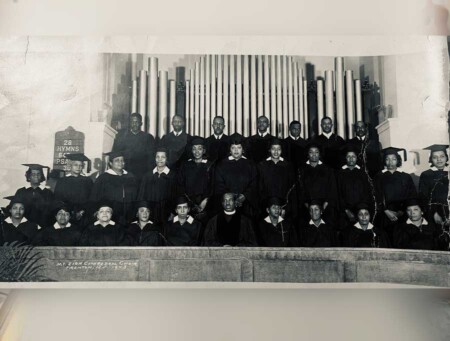
Salvation and Social Justice
Salvation and Social Justice“Our participation in the Community History learning sessions helped us to restructure our project. We learned that our project can be even more successful if we focus on one church in our denomination.” |
|
Salvation and Social Justice seeks to liberate public policy theologically by modeling the hope and resiliency of Black faith. With a long-term goal of telling the story of liberation advocacy in the African Methodist Episcopal Church across New Jersey, they focused this first project on the 200-year history of Greater Mt. Zion AME Church, the oldest Black church in Trenton. They contracted a historian, documentarian, and technology company to map out a strategic plan to tell the story of Greater Mt. Zion’s history of participating in the fight for the freedom and economic growth of Black people. |
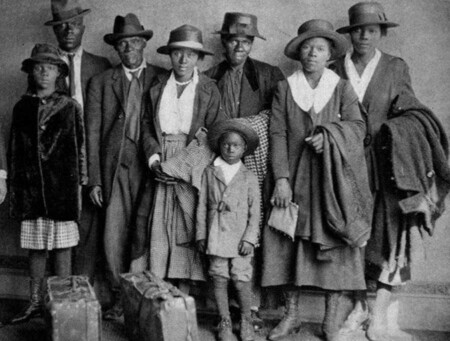
Trent House Association
Trent House AssociationQuote in response to a question about why some African Americans are moving from the north to the south:“I think for some people, life is excellent [here], but for other African Americans, they’re still struggling…Where there was supposed to be opportunities up north, but they were fake opportunities. You got true opportunities down south [now].” |
|
The Trent House began the “Great Migration Oral History Project,” documenting the life stories of African American residents of Trenton who themselves or whose families moved to the city during the Great Migration (1915-1970). It was during this period that six million African Americans relocated from the South to urban centers in the Northeast, Midwest, and the West seeking better economic opportunities and escape from Jim Crow laws. During the project, the Trent House team held two focus group discussions with Trenton-area stakeholders. Focus group participants were asked to reflect on the kinds of information that would be valuable to collect and how the Trent House could present itself as an appropriate sponsoring organization for the project. The Trent House team used information gleaned from these discussions to begin the process of identifying potential interview subjects and developing questions to ask. The “Great Migration Oral History Project” continues, involving students from the College of New Jersey in conducting and transcribing interviews and developing an on-line archive to house interview recordings and transcriptions and supplementary photographs and documents. |
Program Components
The Community History program consists of learning sessions attended by all participants, individual meetings with program staff, and community-based project work.
During the program, participating organizations will build a new history project with support from the cohort and funding from NJCH. Only organizations willing and able to commit to all program components should apply.
Learning Sessions
Learning sessions will include instruction on public history practices, presentations by professionals, and time to workshop projects in a collaborative environment. Full cohort sessions will convene in person and virtually.
Project Work
Participants
Funding
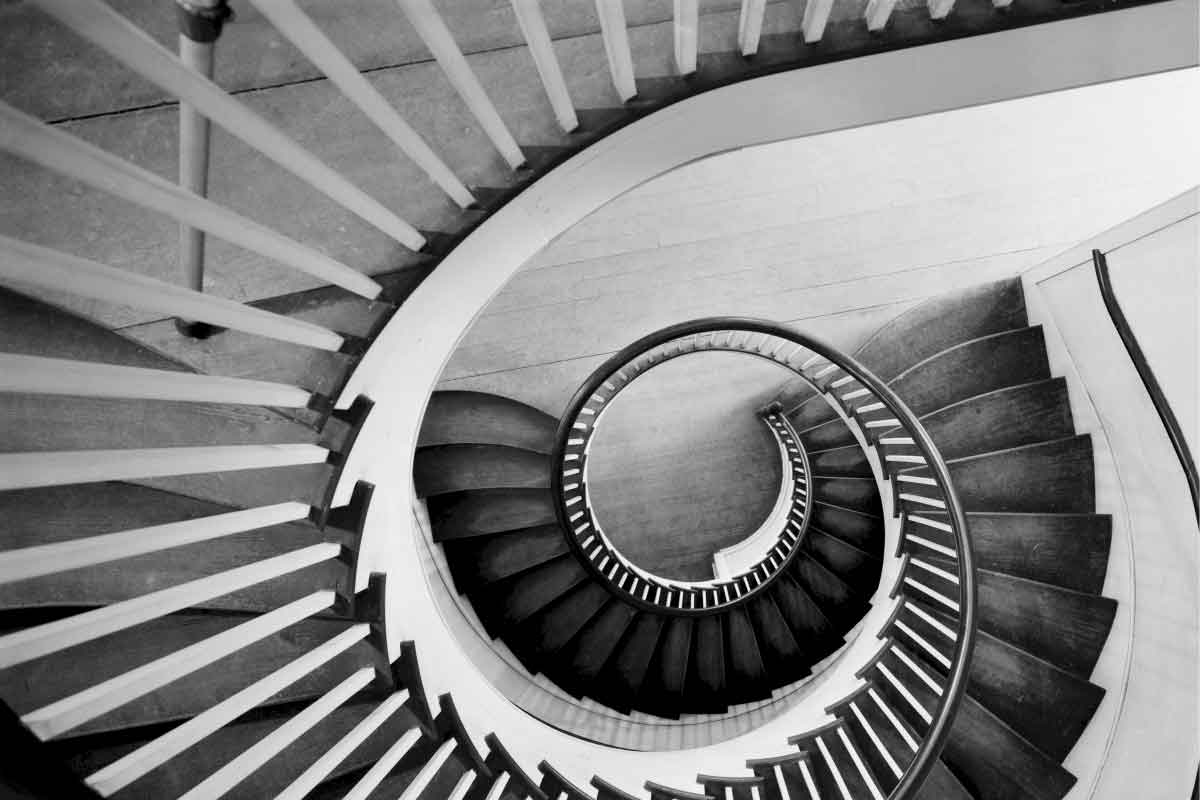
Take the next step
The application deadline for Community History Cohort 2024 was January 17, 2024
People
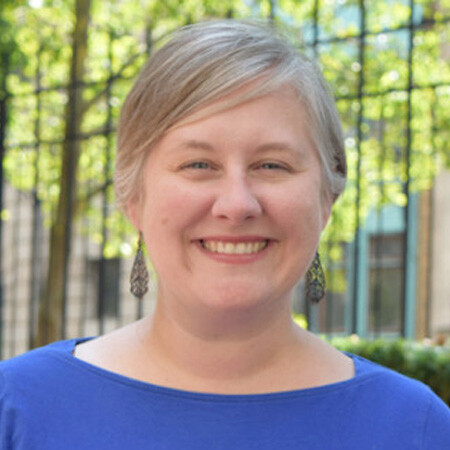
Gigi Naglak
Program Director
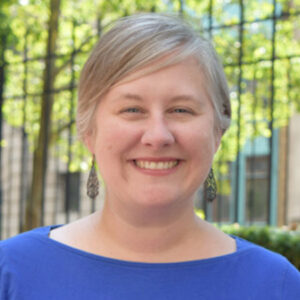 |
Gigi NaglakProgram Director
Gigi spent 15 years in museum education and public engagement at history institutions prior to coming to NJCH, including stints at Ellis Island, the Science History Institute, and the American Philosophical Society. Helping broad public audiences to see themselves in history and to contribute to the historical narrative has always been central to her work, and she is thrilled to bring those practices to communities throughout New Jersey. Her particular interests include cultural studies, history of science, theatre history, and community-engaged history practice. Gigi has a BA in history and theatre arts from Drew University and an MA in performance studies from King’s College London. |
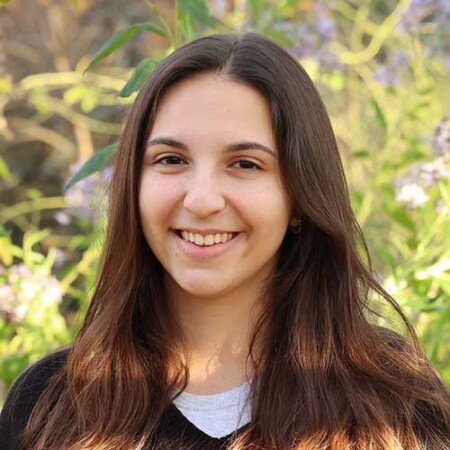
Allie Marchesani
Program Coordinator
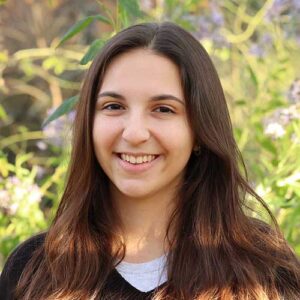 |
Allie MarchesaniProgram Coordinator
Allie Marchesani is a Programs Intern at NJCH who supports the operation and development of the Community History program. She is also a graduate student and History Fellow at Rutgers University – Camden pursuing an M.A. in Public History. For her fellowship, Allie has worked at the Mid-Atlantic Regional Center for the Humanities (MARCH), where she created historic tours on campus and coordinated the Historic Preservation at MARCH program. Allie is grateful to have the opportunity to apply these experiences as well as her previous work experiences in archives and small history museums to help Community History participants through the various stages of their projects. |
Contact
If you have any questions about your eligibility for this program or about program components, please contact Gigi Naglak at gnaglak@njhumanities.org or 609-695-4409.
Header photo: "WKL's Newark Assign" by Warren K. Leffler
Library of Congress U.S. News & World Report Magazine Photograph Collection
https://www.loc.gov/pictures/item/2017657595/
